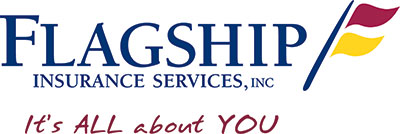 Below are links to updates on legislation, regulation and guidance on both the federal and state levels in response to COVID-19.
Below are links to updates on legislation, regulation and guidance on both the federal and state levels in response to COVID-19.
Congress
- The House passed the $3 trillion Health and Economic Recovery Omnibus Emergency Solutions (HEROES) Act. Although it is considered dead on arrival in the Senate, the massive legislation contains several provisions that impact the health insurance market that may find their way into future legislation.
- Senate Majority Leader Mitch McConnell (R-KY) stated on FOX News that “there is a high likelihood there will be another bill” but this likely won’t happen until after the Memorial Day break, punting any potential vote until June.
- Senator McConnell is also working with Senator John Cornyn (R-TX) to draft liability-protection legislation that could be released as early as this week.
- Senators Tina Smith (D-MN) and Cory Booker (D-NJ) introduced legislation to build a stronger public health infrastructure.
- Senators Tammy Duckworth (D-IL), Susan Collins (R-ME) and Jon Tester (D-MT), as well as Representative Lauren Underwood (D-IL), introduced bipartisan legislation to reduce healthcare costs and ensure parity for veterans impacted by the pandemic.
- Senators Elizabeth Warren (D-MA), Richard Blumenthal (D-CT) and Chris Coons (D-DE), as well as Representatives Pramila Jayapal (D-WA) and John Sarbanes (D-MD), introduced a discussion draft of their legislation to ensure stronger oversight, accountability and transparency in the federal government’s response to the COVID-19 crisis.
- Senators Jeanne Shaheen (D-NH), Bob Casey (D-PA) and Sheldon Whitehouse (D-RI) plan to propose a bill that would provide $20 billion to help states, nursing homes and intermediate-care facilities contain the spread of COVID-19.
Administration
- President Trump issued an executive order invoking the Defense Production Act to expand the domestic production of critical resources needed to respond to the COVID-19 outbreak, including strengthening relevant supply chains within the U.S. and its territories.
- President Trump and Administration officials held a press briefing on COVID-19 testing.
- The Administration announced that firms that received over $2 million in Paycheck Protection Program loans and do not need them will be allowed to repay the money without legal consequences, a reversal of an earlier threat of potential criminal prosecution for such actions.
- The Treasury Department announced important updates on the Payroll Support Program under Title IV of the CARES Act.
- The IRS released guidance to allow temporary changes to Section 125 cafeteria plans.
- The IRS clarified guidance on Economic Impact Payment amounts.
- The Small Business Administration, in consultation with the Treasury Department, released updated Paycheck Protection Program loan FAQs, specifically Question 46.
- HHS, through the Health Resources and Services Administration, awarded $15 million to 159 organizations across five health workforce programs to increase telehealth capabilities in response to the pandemic.
- CMS released a new FAQ document on Price Transparency: Requirements for Providers to Make Public Cash Prices for COVID-19 Diagnostic Testing. The document outlines the requirements from the FFRCA and CARES Act related to price transparency.
- CMS released additional waivers for hospitals and other facilities that provide the flexibilities needed to take care of patients during the public health emergency.
States
- Track where states stand on reopening.
- The Department of Labor issued guidance announcing the availability of $100 million in short-term compensation grant funds for states provided under Section 2110 of the CARES Act.
- HHS sent a letter to all states with additional information on submitting testing plans required by the Paycheck Protection Program and Health Care Enhancement Act.
- CMS released a new Center for Medicaid and CHIP Services Informational Bulletin (CIB) that provides states guidance on how to temporarily modify their Medicaid managed care contracts to address the impact of the public health emergency.
- CMS released a toolkit developed to aid nursing homes, governors, states, departments of health and other agencies that provide oversight and assistance to these facilities, with additional resources to aid in the fight against the pandemic within nursing homes.
- CMS has approved over 190 requests for state relief in response to the pandemic, including recent approvals for California, Georgia, Indiana, Minnesota, Missouri, New Mexico, Ohio and Rhode Island.
 Below are links to updates on legislation, regulation and guidance on both the federal and state levels in response to COVID-19.
Below are links to updates on legislation, regulation and guidance on both the federal and state levels in response to COVID-19.